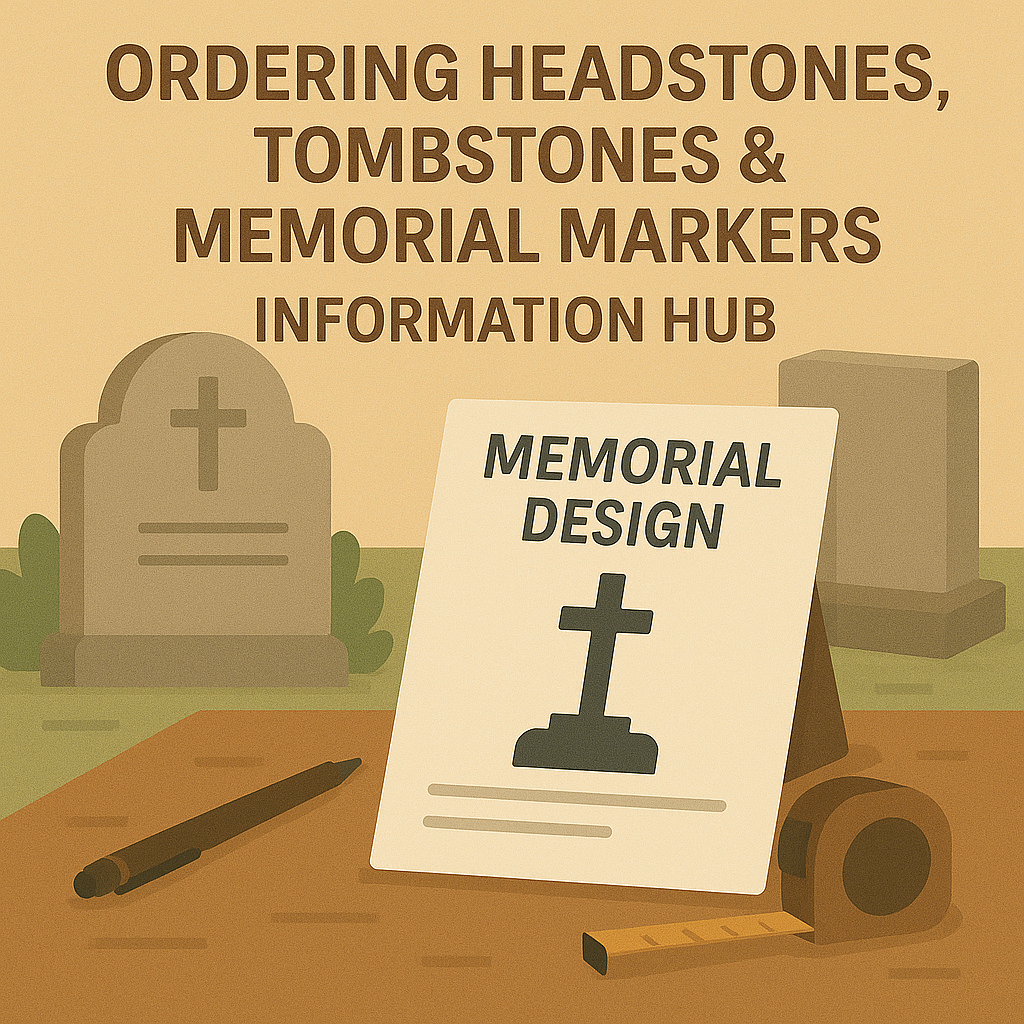Rock Their Legacy
The Headstones, Tombstones & Memorial Markers Information Hub
Choosing a headstone, tombstone, or other memorial marker is both a practical and deeply personal decision. This hub covers the different types of grave markers, customization options, material choices, costs, and what to expect during the selection and installation process. Whether you’re pre-planning or navigating a recent loss, we’re here to help you make informed, meaningful choices.

Key Things To Know
Choosing a memorial marker isn’t just about stone and engraving. It’s about capturing a story, honoring a life, and navigating a few practical steps along the way. Here are some essentials to keep in mind.
- Types of Markers Vary Widely: Common options include upright headstones, flat grave markers, slant markers, bevel markers, and custom monuments. Cemeteries may have rules about what types are allowed, so check before you fall in love with a specific style.
- Materials Affect Appearance and Longevity: Granite is the most popular choice because it’s durable and comes in many colors. Marble offers a classic look but weathers faster. Bronze is sleek and low maintenance, often used for flat markers.
- Customization Options Go Beyond Names and Dates: Modern markers can include engraved photos, meaningful quotes, emblems, or even QR codes that link to a digital memorial page. If you want something unique, you can likely make it happen.
- Cemetery Rules Can Limit Your Options: Some cemeteries restrict marker sizes, materials, or designs. Others have sections where only flat markers are allowed. Ask for the cemetery’s regulations before placing an order.
- Prices Can Range From Hundreds to Thousands: Costs depend on the type, size, material, and level of customization. A basic flat granite marker might cost a few hundred dollars. A large upright monument with detailed carvings can run into the thousands.
- Timing Matters: Markers aren’t usually installed immediately after burial. It can take weeks or even months to design, produce, and place one. Weather and cemetery schedules can also cause delays.
- Installation Is a Separate Step: Even if you buy the marker from a monument company, the cemetery usually handles the installation. There may be a separate fee for this, so ask ahead.
- Pre-Planning Makes a Difference: You can select and even install a memorial marker in advance, either for yourself or a loved one. Pre-planning can ease the decision-making burden later and often gives you more creative freedom.
Articles
Frequently Asked Questions
Disclaimer: The information provided on this website and by Buried in Work is for general informational purposes only and should not be considered legal advice. Please consult with a qualified attorney or subject matter expert for advice specific to your situation.



